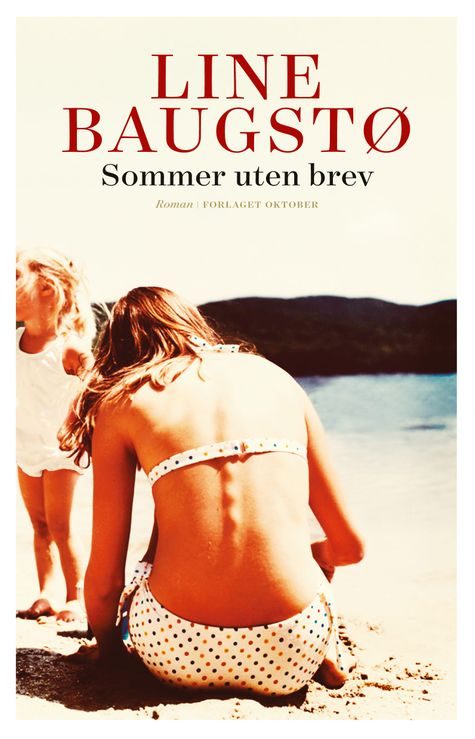A Summer without Letters
In the summer of 1968, Sigrid is left alone in the terraced house with her two young daughters. Her husband Erling has given up his job as a photographer and has left to pursue his dream of a life in the wilds of Canada and Alaska. He intends to paddle on tranquil waters, fish for salmon, and take photographs of wild animals which he can sell later on.
Sigrid tries to support herself and her girls by selling Tupperware. She too dreams of something bigger, of breaking free of constricting gender roles and of making her living from writing. At the same time it gets increasingly difficult to make ends meet. Every day the girls ask if there has been any correspondence from their father, but they hear nothing.
Line Baugstø powerfully conveys Sigrid’s growing desperation. A Summer Without Letters is a concise novel about being in freefall, about the distance which can exist between women and men, and about not having more than 18 Norwegian kroner left to live on.
Praise for A Summer Without Letters:
“the author chooses situations and presents problems that are interesting to today’s readers […] one of those books that shoud be read by men […] the story is so open, so loyal to both Sigrid and Erling, that it may be interpreted in many ways”
Dagens Næringsliv
“As a whole, A Summer Without Letters is another successful book from Baugstø who, especially with her depictions of everyday life, has found a subject that she has a very good grip on. A good idea has been carried out through sharp observations and precise wording. She is definitely at her best”
Hamar Arbeiderblad
“A Summer Without Letters is well-composed and absorbing. The characters are good, and you want to know what is going to happen next […] What gets you are her great observations, ideas and stories, seamlessly bound together”
Klassekampen
“In Baugstø’s new and highly successful novel, A Summer Without Letters, the idyll cracks […] A Summer Without Letters is a well-written portrait of a relationship falling apart and a close, yet distant, time, in a clear and becoming prose. The characters are credible, the tension quivers until the last page. The novel may be read as a clear lesson in freedom and responsibility, and it is hereby recommended.”
Dagsavisen
“A line is drawn from Amalie Skram via Torborg Nedreaas and Bjørg Vik to Lene Baugstø. Upon this line stands four great authors who reveal a crookedness in gender roles in different times […] The depiction of Sigrid’s advance towards the breakdown is great penmanship. We are given no grand gestures, no raw and skinless facts. The book is easily read and tightly composed”
5/6 stars, Fædrelandsvennen
“a powerful reminder of the web of social norms and traditions the pioneers of feminism had to tear apart […] the author shows her honed ability to depict quite nuances”
VG
“A nonindugent tale about whether one individual can manage to begin the history of a whole generation of women […] The linguistic choices constitute an interesting move: Where Sigrid’s observations show themselves through inner reflection, in the first person, the experiences of Elling the adventurer are told in third person, which more than suggests how the stay at home housewife is a hero of greater importance”
Bergens Tidende

